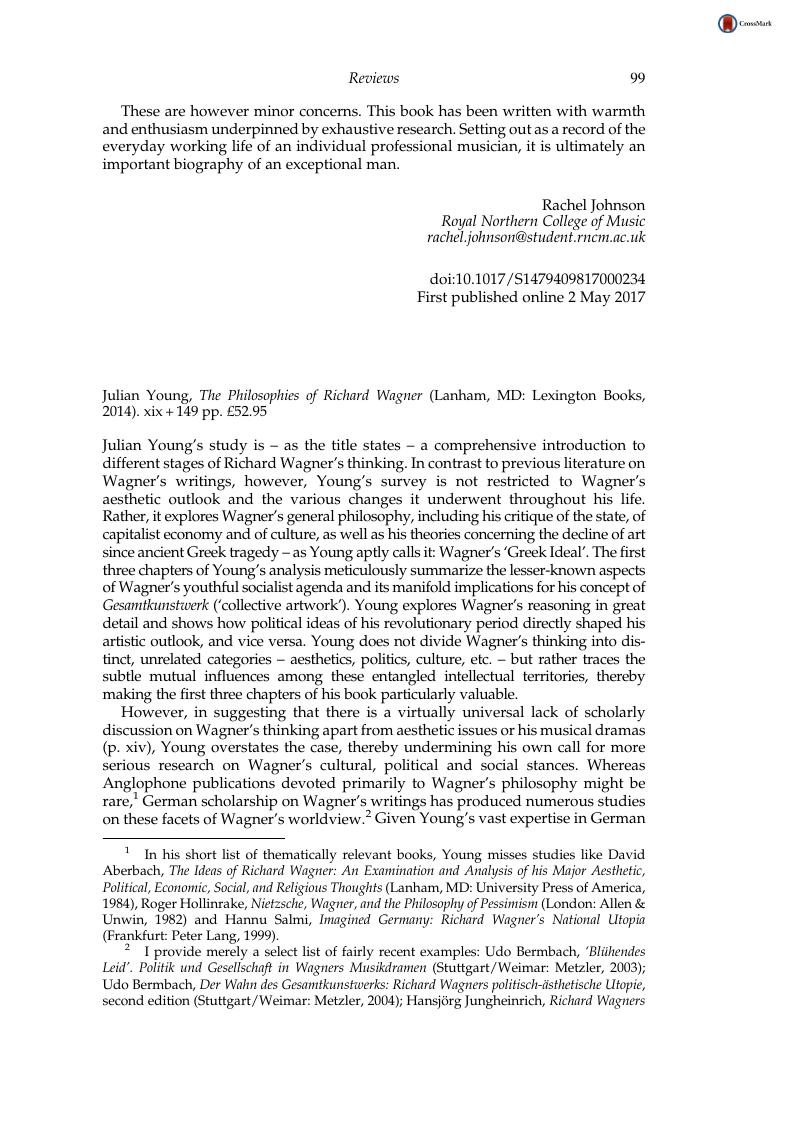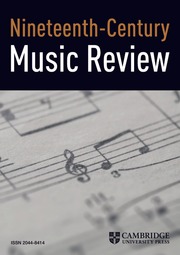No CrossRef data available.
Article contents
Julian Young, The Philosophies of Richard Wagner (Lanham, MD: Lexington Books, 2014). xix+149 pp. £52.95
Review products
Published online by Cambridge University Press: 17 April 2017
Abstract

- Type
- Book Reviews
- Information
- Copyright
- © Cambridge University Press 2017
References
1 In his short list of thematically relevant books, Young misses studies like Aberbach, David, The Ideas of Richard Wagner: An Examination and Analysis of his Major Aesthetic, Political, Economic, Social, and Religious Thoughts (Lanham, MD: University Press of America, 1984)Google Scholar, Hollinrake, Roger, Nietzsche, Wagner, and the Philosophy of Pessimism (London: Allen & Unwin, 1982)Google Scholar and Salmi, Hannu, Imagined Germany: Richard Wagner’s National Utopia (Frankfurt: Peter Lang, 1999)Google Scholar.
2 I provide merely a select list of fairly recent examples: Bermbach, Udo, ‘Blühendes Leid’. Politik und Gesellschaft in Wagners Musikdramen (Stuttgart/Weimar: Metzler, 2003)Google Scholar; Udo Bermbach, Der Wahn des Gesamtkunstwerks: Richard Wagners politisch-ästhetische Utopie, second edition (Stuttgart/Weimar: Metzler, 2004); Jungheinrich, Hansjörg, Richard Wagners Weltschau. Verhängnis oder Verheißung? (Berlin: Frieling, 1999)Google Scholar; Kienzle, Ulrike, ‘… daß wissend würde die Welt!’ Religion und Philosophie in Richard Wagners Musikdramen (Würzburg: Königshausen & Neumann, 2005)Google Scholar; Schild, Wolfgang, Staat und Recht im Denken Richard Wagners (Stuttgart: Boorberg, 1994)Google Scholar.
3 Zöller, Günter, ‘Schopenhauer’ in Wagner und Nietzsche. Kultur – Werk – Wirkung. Ein Handbuch, ed. Stefan Sorgner, James Birx and Nikolaus Knoepffler (Reinbek: Rowohlt, 2008): 355–372Google Scholar.
4 Zöller, ‘Schopenhauer’, 361.
5 Zöller, ‘Schopenhauer’, 362.
6 I want to thank Nicole Grimes, Christoph Landerer and Tom Grey for several helpful suggestions and stylistic remarks. This review was made possible by financial support of the Austrian Science Fund (project number P26610-G15).





